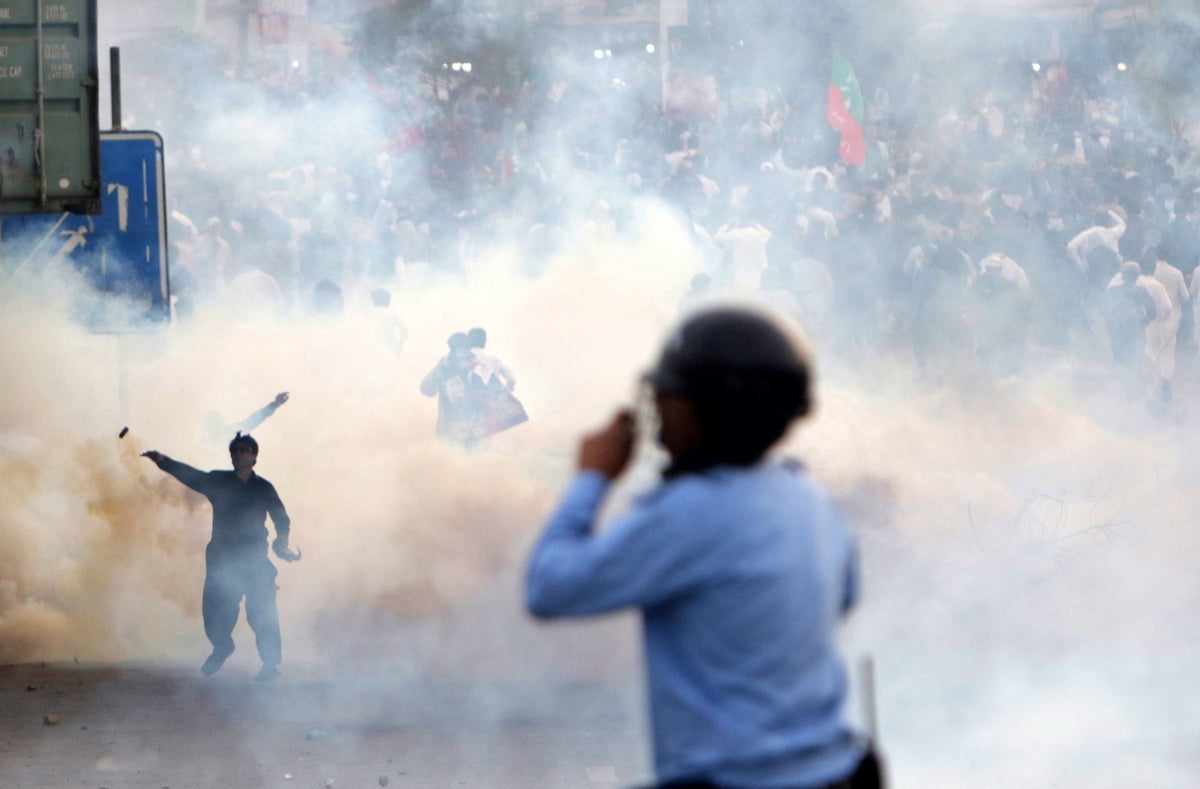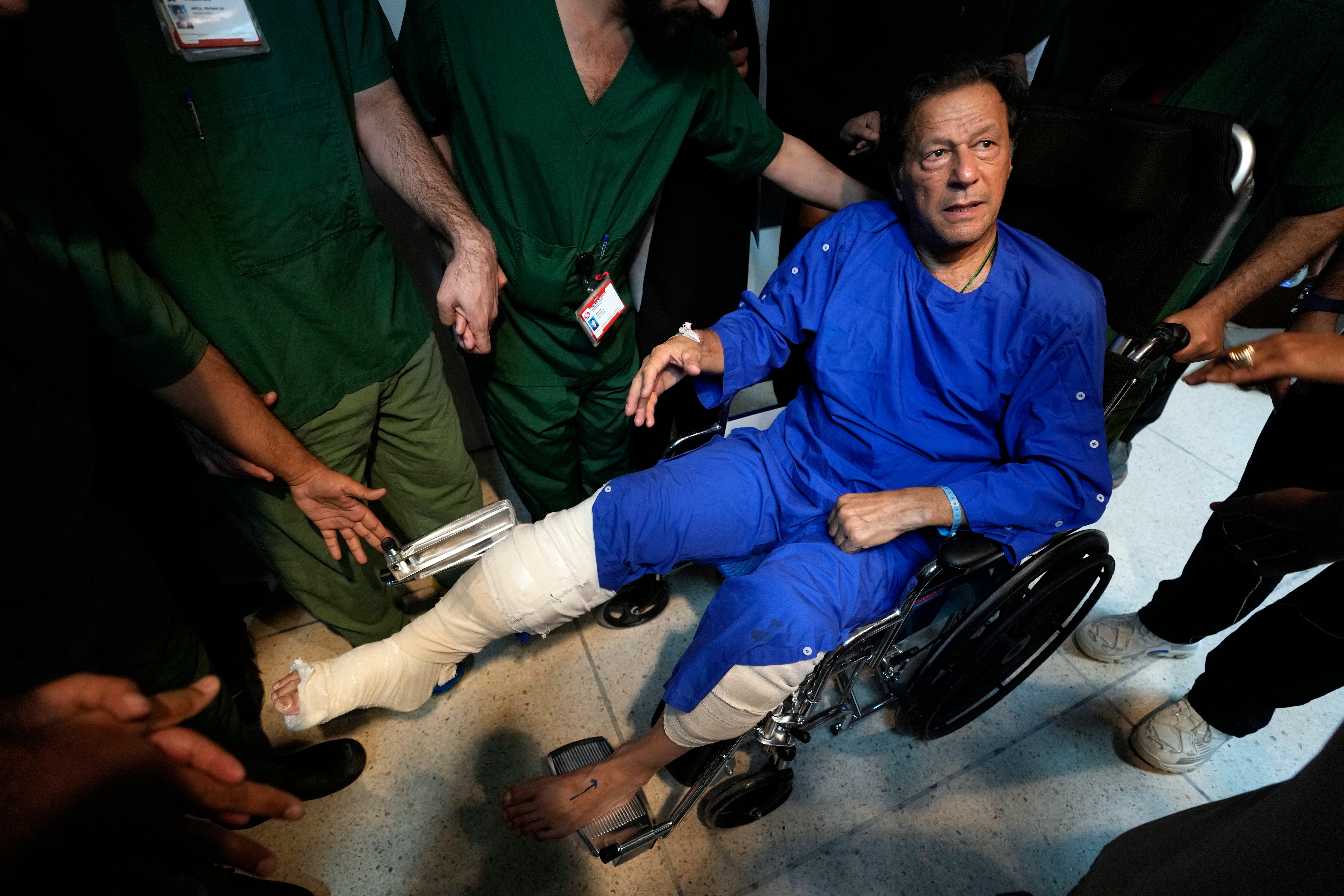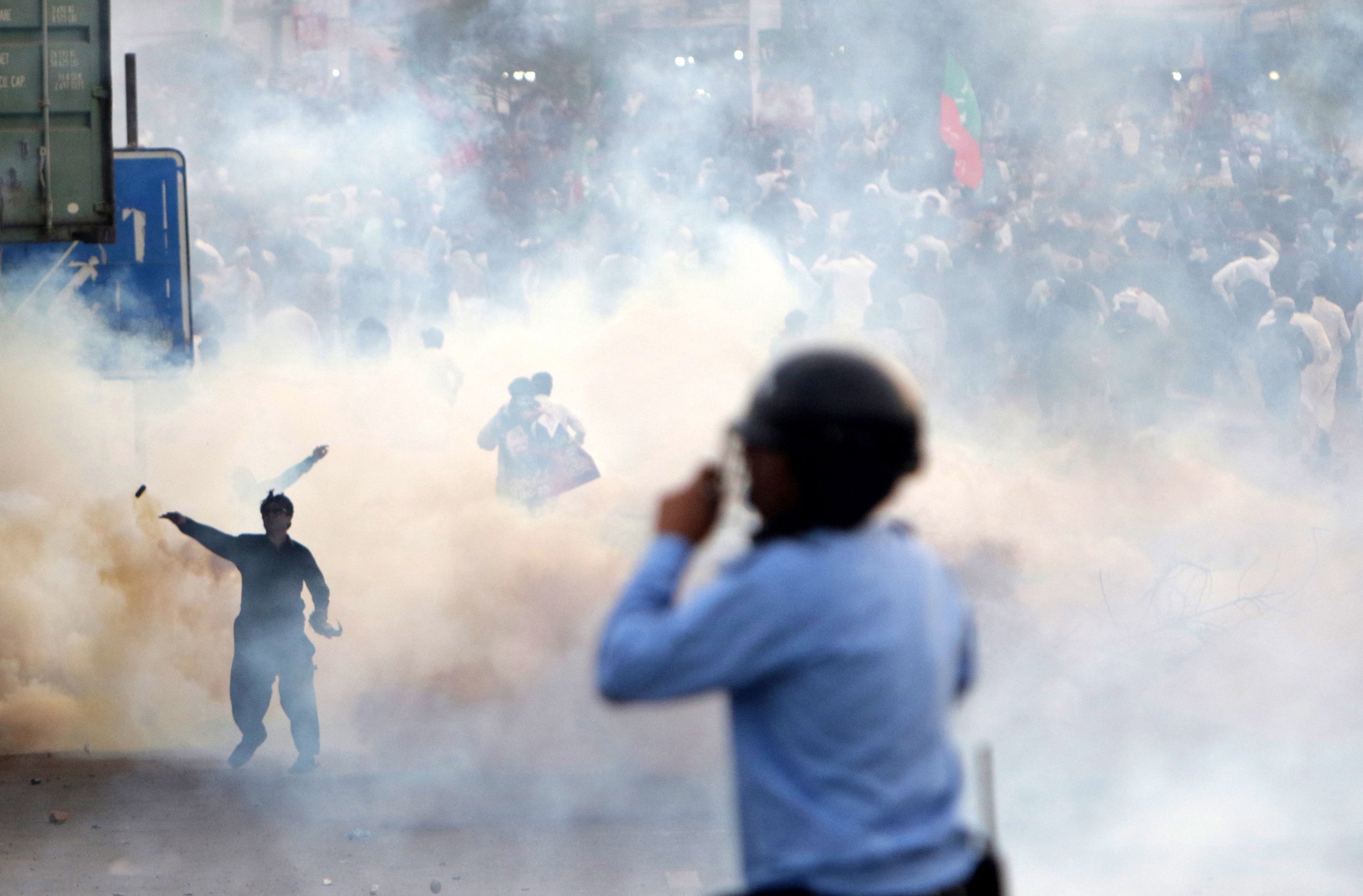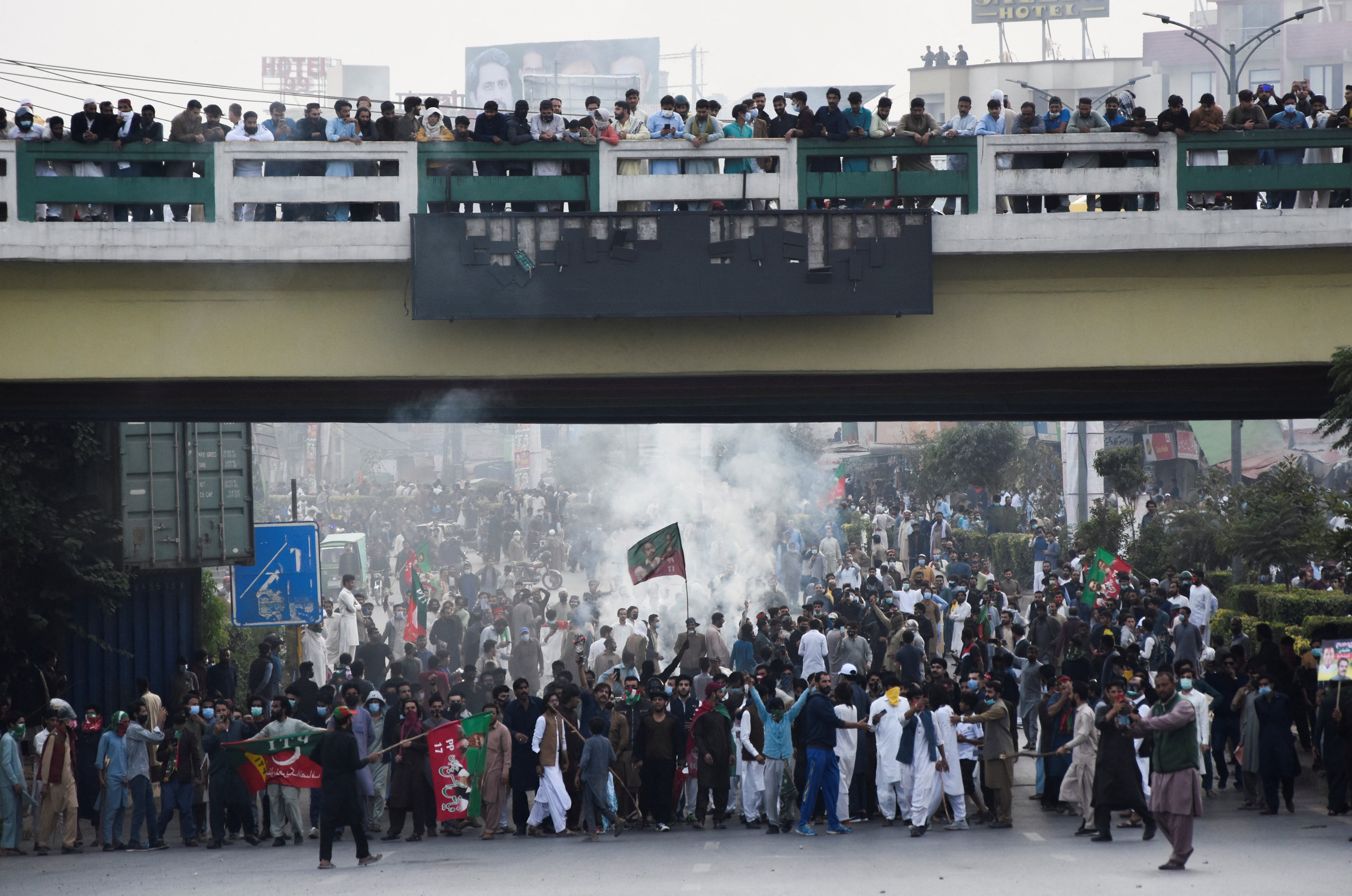
Pakistan is on the brink of major political upheaval, observers have warned, after former prime minister Imran Khan survived an alleged assassination attempt.
In his first public address since being shot on Thursday, Mr Khan said he would return to leading protests against incumbent Shahbaz Sharif in the capital.
“As soon as I recover, I have decided that I will be back on the streets and will issue the call for a [march on] Islamabad,” Mr Khan said from a Lahore hospital, appearing in front of television cameras with his wounded leg bandaged and elevated.

He accused Mr Sharif, interior minister Rana Sanaullah Khan (no relation) and Major General Faisal Naseer, a senior officer in the government’s intelligence agency, of orchestrating the shooting.
“These three decided to kill me,” Mr Khan said, adding that two gunmen were involved, in unevidenced claims. The media wing of Pakistan’s military called the allegations “baseless and irresponsible” and said it had asked the government to file a defamation suit.
Mr Sanaullah rejected the claim and said ministers had demanded an independent investigation.
Mr Khan was shot in the town of Wazirabad, eastern Pakistan, as he waved to supporters from the roof of a container truck leading a convoy six days into a march on Islamabad. The attack killed one and wounded at least 10.
It also raised the stakes in a tense political stand-off between the former prime minister and the military, which he has accused of backing the vote of no confidence in his leadership that saw him removed from power in April and later barred from holding public office for five years.

Supporters of Mr Khan gathered at the site of his shooting on Friday and urged the ousted leader – a former national cricket captain – to return to leading the march on Islamabad.
Concurrent pro-Khan protests took place in cities across Pakistan, with some witnesses reporting aggressive spectacles.
Observers have warned that there was little hope the upheaval would subside.
“We are heading for political chaos for sure,” Mazhar Abbas, a leading Pakistani political analyst, told The Telegraph. “The present protest demonstrations and police reaction could lead to more violence.”

Michael Kugelman, the deputy director of the Asia programme at the Wilson Centre think tank, said there appeared to be no one willing to pull back from the brink.
“Pakistan badly needs some form of de-escalation, but neither side has indicated a willingness to compromise.
“There is a real risk that Islamabad’s feuding political factions will instead find themselves on a collision course with no offramp in sight,” Mr Kugelman wrote in Foreign Policy.







